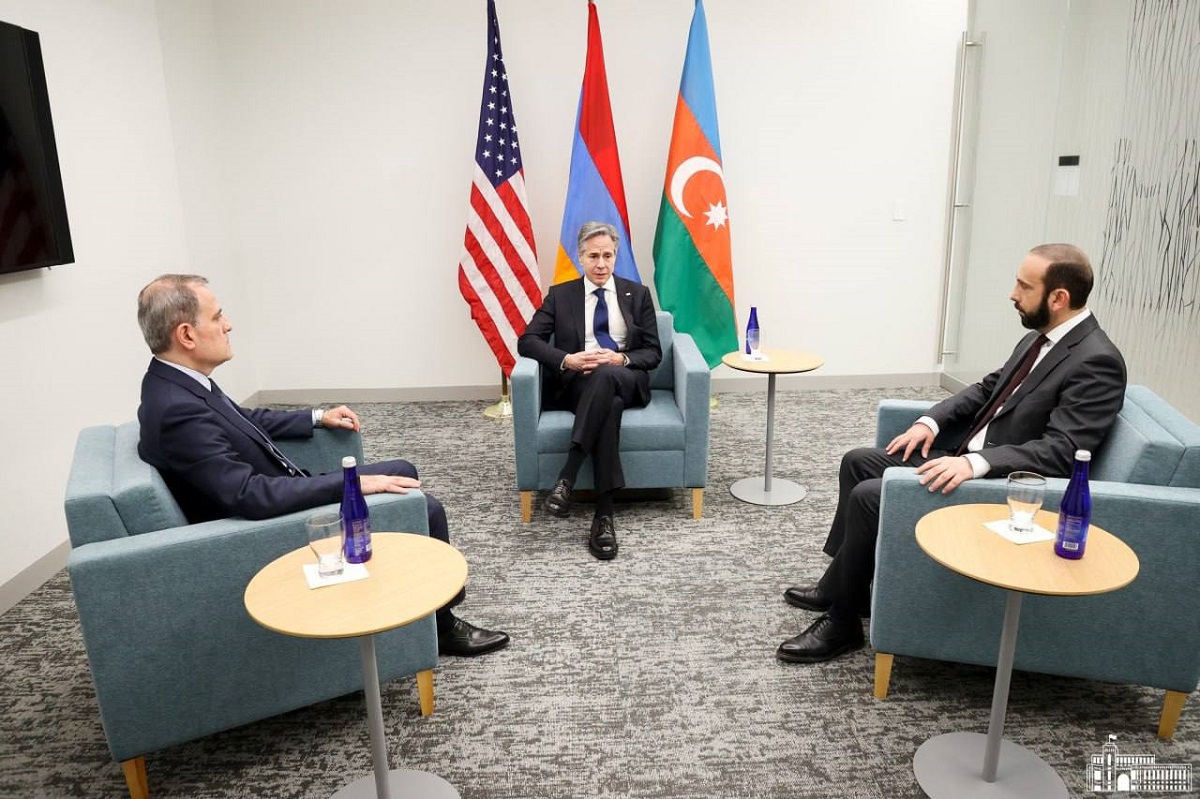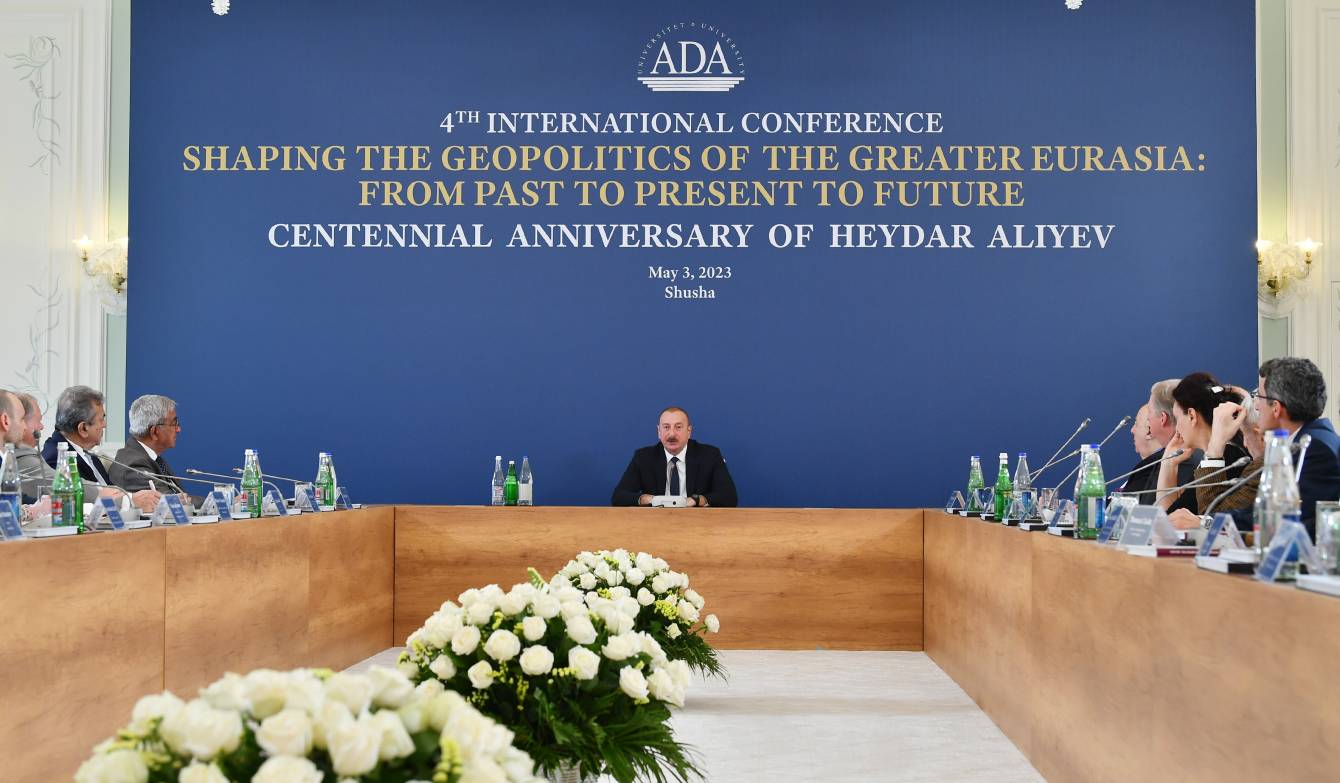"The agreements reached in Washington will be confirmed in Moscow." Comment from Baku
Peace talks between Armenia and Azerbaijan
The next two rounds of peace talks between Azerbaijan and Armenia are expected. On May 14, the leaders of the two countries will meet in Brussels through the mediation of the head of the Council of the European Union, Charles Michel, and on May 19 the heads of the foreign affairs agencies of Azerbaijan and Armenia will meet in Moscow at the initiative of the Kremlin. South Caucasus Research Center experts believe that the agreements reached between the parties in the United States will be confirmed in Moscow.
“In Prague, Baku achieved mutual recognition of territorial integrity and sovereignty from Yerevan, and this was subsequently confirmed in the Sochi tripartite statement, and now the agreements reached in the United States will be similarly confirmed at a meeting in Russia,” their analysis reads.
- President of Georgia requests meeting of Security Council regarding visa policy
- Putin cancels the visa policy for Georgian citizens and allows direct flights to Georgia
- Imprisoned oppositionist on hunger strike for three months
“We have taken a step forward in the negotiations in Washington”
The information about the meetings was published by Armenia. Azerbaijani officials have not made specific statements.
Today Azerbaijani Foreign Minister Jeyhun Bayramov, while not providing journalists with specific information about the meetings, assessed expectations: “The meeting of the leaders after a certain break is a positive thing. Probably there is not much time left to wait for the negotiations and their outcome,” the minister said.
Bayramov also talked about the meeting of the foreign ministers of the two countries that took place last week in the United States. He said that “we have taken one step forward” in the talks in Washington.
“We had quite intense discussions of the peace agreement in Washington for four days. They contain a number of points, important questions. It is impossible to speak of complete agreement, there are enough differences between the positions of the parties, but in these negotiations agreements were reached on certain articles of the peace treaty. We have taken another step forward. We must be realistic about this process. Of course, it would be good to agree on all issues at one meeting. We want it, but we are not yet ready for it. Azerbaijan constantly demonstrates its commitment to the peace process,” the minister said.
Meeting in the USA: results and consequences
“The parties did not make a joint statement, they made separate statements but with the same content. The State Department stated that “the parties have made significant progress in resolving complex issues,” while the Azerbaijani and Armenian sides stated that “mutual agreement has been reached on some articles of the draft bilateral agreement, while positions on some key issues remain different.”
During the talks, Azerbaijani President Ilham Aliyev discussed the normalization process in Shusha, and Armenian Prime Minister Nikol Pashinyan in Prague.
Aliyev called “any attempt to insert the non-existent so-called ‘Nagorno-Karabakh Republic’ into the text of the peace agreement” unproductive. Pashinyan accused Azerbaijan of a “policy of ethnic cleansing” and called “important” the direction of the international group to Karabakh and the Lachin road.
“Different positions on major issues”
From the statements of the leaders and foreign ministers, the experts concluded that the current “differences in positions on some key issues” between the parties primarily relate to Karabakh and enclaves.
“Baku considers Karabakh to be its internal affair and demands official recognition of this by Armenia: “They said A, I must say B. They must say what I said – Karabakh is Azerbaijan!” In other words, Armenia must officially recognize not only Karabakh as part of Azerbaijan, but also the sole and indivisible sovereignty of Azerbaijan over Karabakh.
Armenia, in turn, wants the dialogue between Baku and Khankendi (Stepanakert) to take place under the control of international observers. In fact, Armenia wants to continue the policy of separatism within Azerbaijan with the help of the United States, France and Russia.
Pashinyan, constantly talking about the territorial integrity of 29,800 square meters, wants Baku to abandon the enclaves located on the territory of Armenia. Occupied by Armenia in 1990-92 seven villages of Gazakh, and the village of Karki Nakhichevan are enclaves / exclaves of Azerbaijan in the territory of Armenia. These villages are located on the roads connecting the northern and southern regions of Armenia, as well as on important highways leading to Georgia and Iran. Baku, in turn, talking about the mutual recognition of territorial integrity, means the acceptance by Armenia of Karabakh eight-plus villages as territories of Azerbaijan.”
“Mutual agreement on some points”
According to the CSSC analysis, the fact that the leaders did not say anything about transport and communication routes and humanitarian issues in their speeches indicates that the ministers reached some agreement on these issues.
“With a high probability, if Azerbaijan had not established a checkpoint in Lachin before the visit, this issue would have been one of the problems included in the “different positions” category. Thus, the establishment of the Lachin checkpoint ahead of the meeting presented Armenia with two choices in the US:
• First, create a checkpoint in Zangezur and accept the model of “sovereign rights to roads” proposed by the West;
• Abandon the Western model and accept Russia’s proposed extraterritorial Zangezur corridor.
Armenia’s repeated rejection of the Zangezur Corridor model and the fact that the meeting was held in the United States indicate that Yerevan prefers the first option.”
Predictions before the next meeting
CSSC experts also announced their predictions regarding the ministerial meeting to be held in Moscow. According to them, just as in Prague Baku achieved mutual recognition of territorial integrity and sovereignty from Yerevan, which was later confirmed in the Sochi tripartite statement, now the agreements reached in the United States will be confirmed at a meeting to be held in Russia.
“As much as Azerbaijan would like to sign a peace agreement as soon as possible, it is also interested in the relevance of the tripartite statement of 10 November. Since the trilateral agreement imposes important obligations on Armenia and creates a legal basis for the withdrawal of the Russian peacekeeping contingent from Azerbaijan in 2025,” the CSSC analysis says.




















